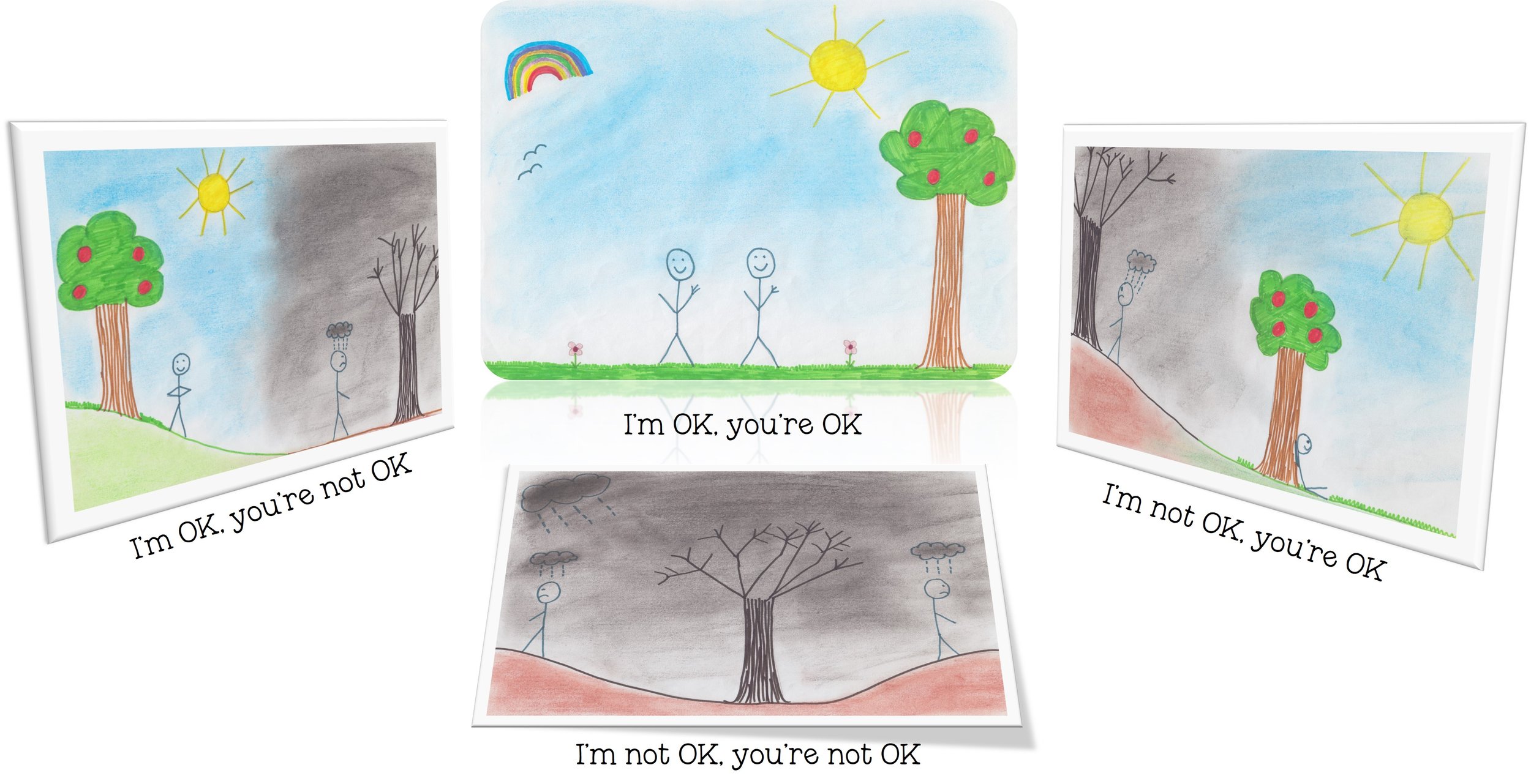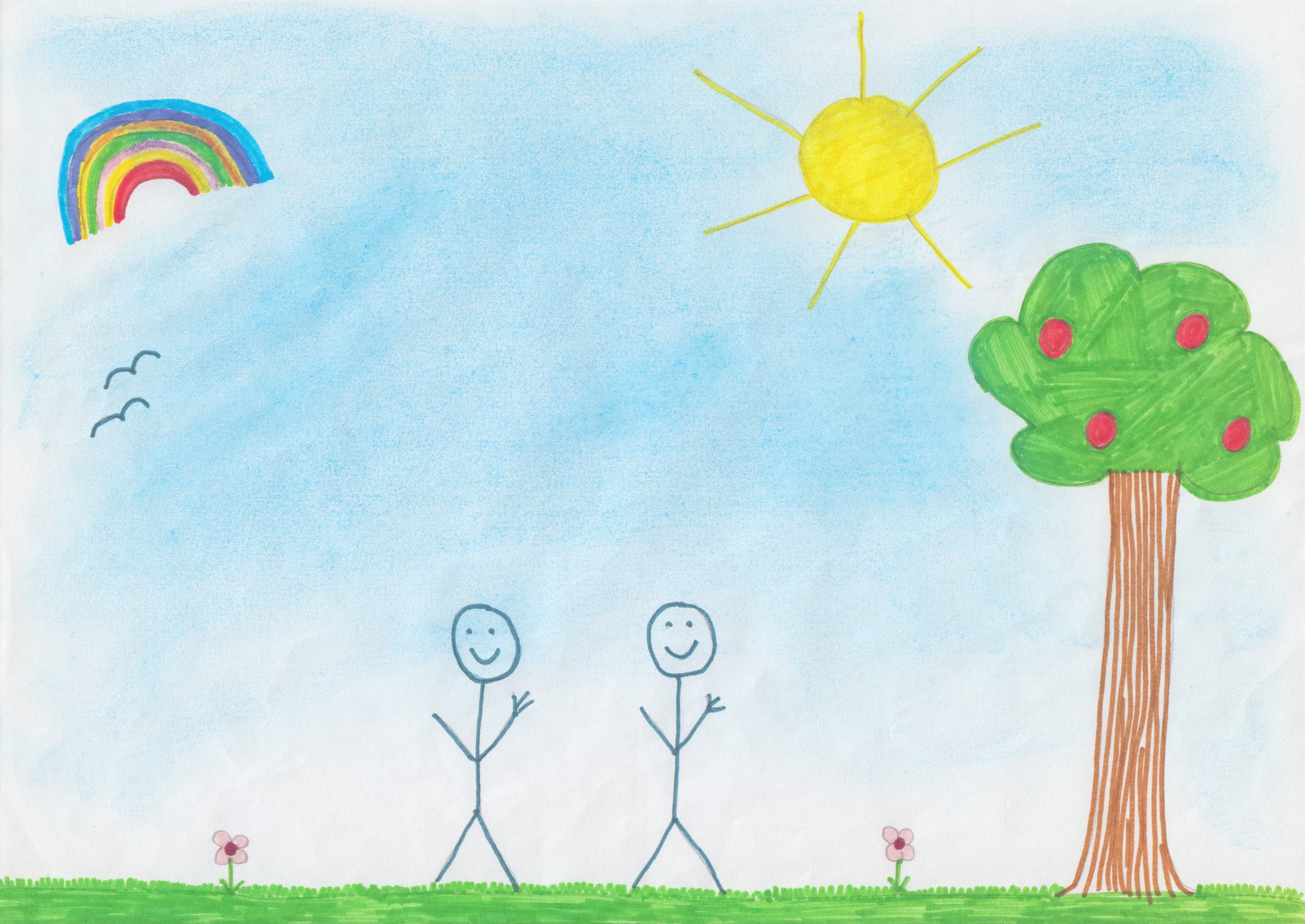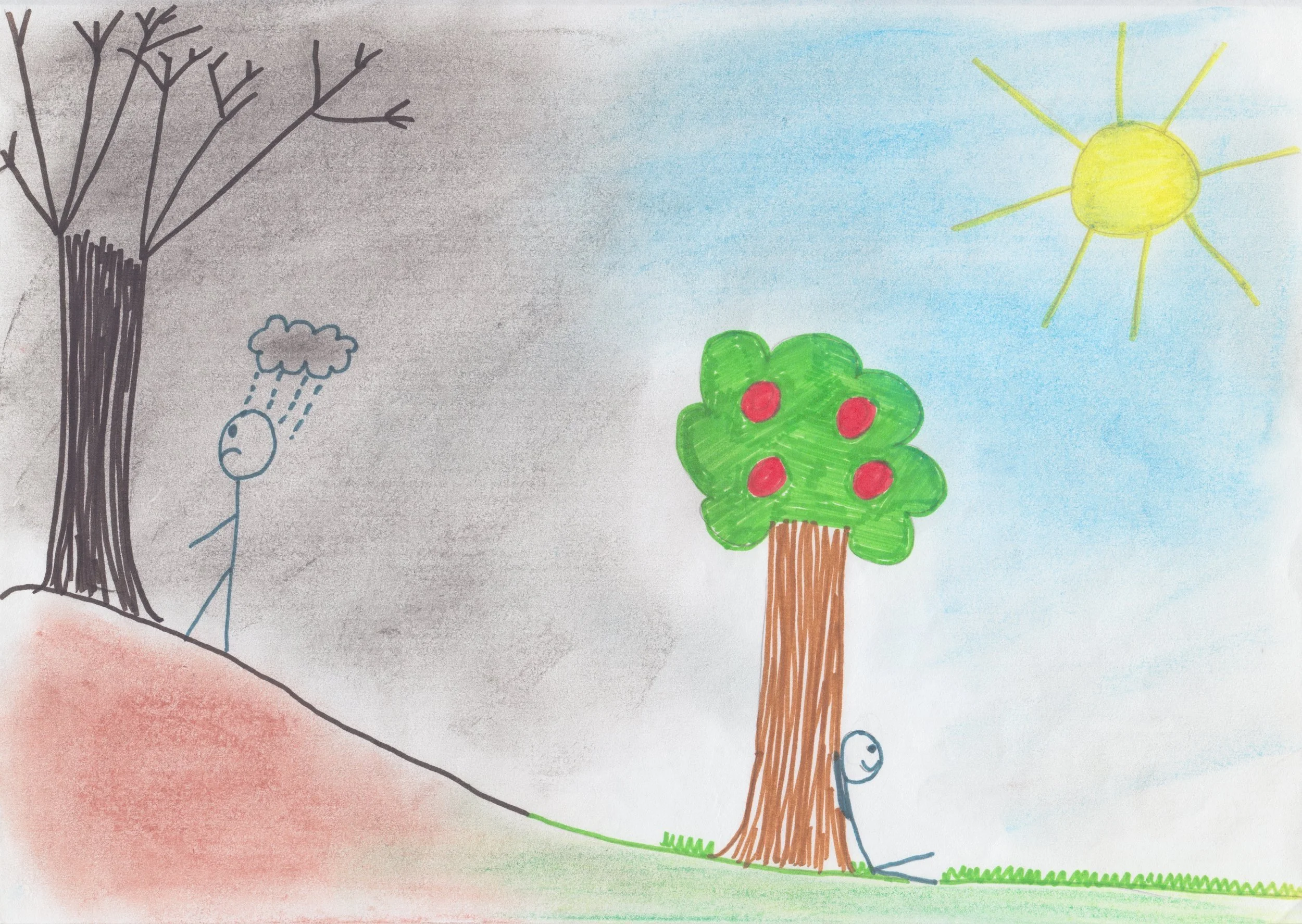
The ‘OK Corral’
The ‘OK Corral’ is a framework which suggests that human beings, in all our diverse ways of existing, share the same four ways of experiencing the world*. Quite simply, these four perspectives arise from the sum of our experiences and whether we feel ‘OK’, or ‘not OK’.
Being ‘OK’ and ‘not OK’
Our healthiest way of existing is from an ‘I’m OK, you’re OK’ perspective.
This is a representation of the world from an ‘I’m OK, you’re OK’ perspective.
Of course, it isn’t always possible to feel ‘OK’ and there are times when we all feel ‘not OK’, for any number of reasons. Indeed, whilst we can hold the moral belief that we all have value and worth - that we are all 'OK' – this isn’t something we always live by; it isn’t possible to always feel ‘OK’, because we don’t always exist with equality. Throughout life, there is advantage and disadvantage which affects our ability to survive, to grow and to thrive. It's likely, therefore, that we’ll experience the world from four different perspectives, based on whether we feel ‘OK’, or ‘not OK’ about ourself and others. It’s also important to recognise that some people, through no fault of their own, begin life more disadvantaged than others and, as a consequence, don't embark on life feeling 'OK'.
When we feel ‘OK’, it’s likely that we’ll have a sense of hope and possibility. Our stress levels will be tolerable, we'll be resilient and have good self esteem; we’ll be able to cope with the ups-and-downs of life. We’ll treat other people fairly, with kindness and respect. When we feel 'OK', we're more able to communicate effectively and relate to others in a healthy way. In turn, we’re able to see the ‘bigger picture’ and consider a wider range of options to solve problems. In the process of solution finding, the people we interact with can also feel ‘OK’ and often, the solutions we find will not impact others negatively.
However, when we feel ‘not OK’, our stress levels can be too high. We might feel low in mood, overwhelmed, or anxious. We might also feel as though we're powerless to solve problems. Indeed, we may well be unable to change some of our circumstances. Our experience can be one of disconnection, lack of hope and powerlessness. We might behave in ways which are problematic; we might act out some of our difficulties on others, behaving in ways which are unreasonable, unfair, intolerant, unkind or inconsiderate. At the far end of this spectrum, we’re capable of carrying out acts of incredible cruelty and destruction.
The way we see the world is the basis for how we live in the world
Naturally, what constitutes feeling 'OK' is different for everyone and is also subject to change throughout the various stages of life. However, our core sense of being 'OK' and 'not OK' began forming during childhood, perhaps even pre-birth, and stays with us throughout our lives.
Our early experiences of feeling ‘OK’ and ‘not OK’ became the foundations of our perspectives. As we grew, these early perspectives became templates for how we see the world, shaping how we exist and the world we create around us.
Our early experiences create our expectations of how other people will be
For example, if we experienced our caregivers as being available, coming to us when we reached out, tending to our needs and showing us love, it's likely that we'll have felt ‘OK’. When our overall experience with others is of feeling 'OK', it's likely that we'll grow believing others are ‘OK’ too.
By putting together our beliefs about ourselves and others - 'I'm OK', 'I'm not OK', 'you're OK', 'you're not OK' - we come to the four perspectives we see the world from.
The four perspectives
The following words are my pen sketches of life from each perspective. They’re a general portrait, not a description of any particular individual's experience.
*at least from a Westerner’s perspective.





